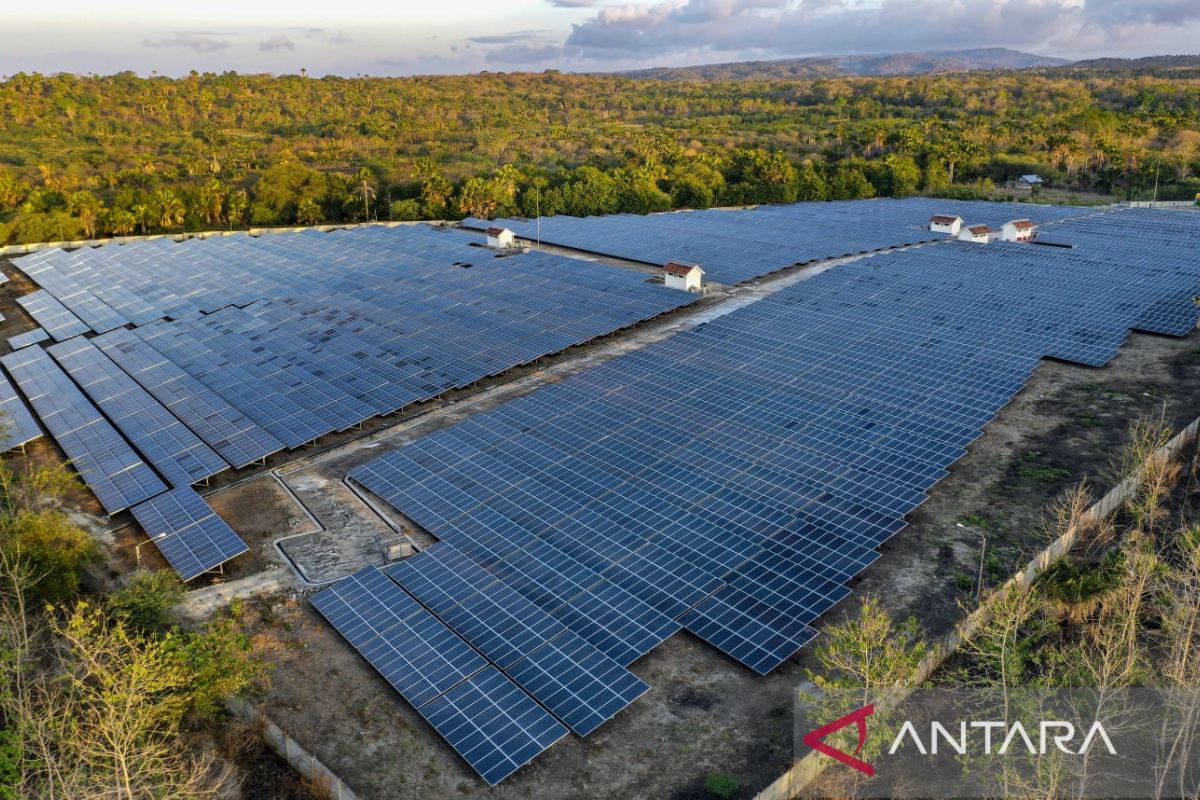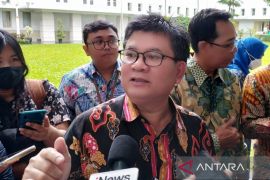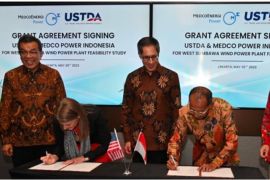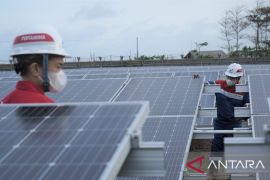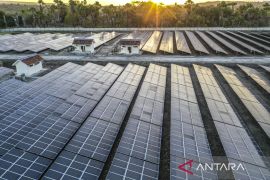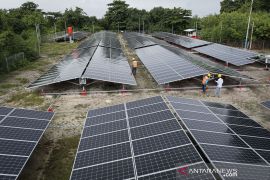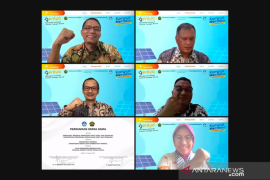Indonesia is open to international cooperation, including foreign investment, innovative funding scheme, and transfer of technology based on equal and mutual partnershipJakarta (ANTARA) - The government will use a blended finance scheme to encourage foreign investment in the development of clean power, an official of the Energy and Mineral Resources Ministry stated.
Director General of Renewable Energy and Energy Conservation at the ministry Dadan Kusdiana remarked that the government will optimize its G20 presidency to attract innovative and beneficial funding.
"Indonesia is open to international cooperation, including foreign investment, innovative funding scheme, and transfer of technology based on equal and mutual partnership," Kusdiana noted in a statement here on Monday.
A regulation on the blended finance scheme has been formulated, he pointed out.
Related news: Solar Power Plants as backbone of Indonesia's clean energy: Minister
Kusdiana elaborated that under the scheme, Indonesia will not only rely on domestic financing and commercial bank funding.
It is also opened for philanthropy as well as multinational companies having a commitment to support the development of clean electricity in Indonesia.
"The blended financing scheme would include trust fund for Indonesia's climate change to facilitate funding from donors, namely, the Asian Development Bank, the European Investment Bank, and the World Bank," Kusdiana remarked.
Meanwhile, the Sustainable Development Goals (SDGs) One Indonesia, as an integrated platform, would support projects related to SDGs comprising the four pillars of development facility, de-risking, funding, and equity.
Furthermore, non-government budget investment financing will encourage private sectors in the development of strategic infrastructure projects. This scheme would facilitate investors in equity funding.
Related news: G20 momentum for Indonesia to realize nuclear power plants: Observer
The Tropical Landscape Finance Facility (TLFF) is aimed at benefiting the public funding for sustainable land use that include ecosystem restoration and investment in clean electricity.
In addition, Kusdiana noted that there is a Public Private Partnership (PPP) scheme, a long-term contract between the private sector and government entity to provide public service assets in the form of project development facility, viability gap fund, infrastructure assurance, and availability payment.
Another funding scheme came from commercial banks through the Financial Service Authority (OJK) policy that required a certain percentage from credit portfolio for green project funding.
Related news: Fueling the green energy drive through rooftop solar panels
Kusdiana stated that it would need a total US$1 trillion of investment or US$29 billion per year to reach the target of carbon neutrality by 2060.
The total amount would comprise US$1,042 billion for investment in clean electricity and US$135 billion for investment in power transmission.
According to a report of the International Renewable Energy Agency (IRENA), the cost for clean power plant development in 2020 has declined significantly during the past 10 years.
"Intermittent electricity price has continued to decline. Within the past 10 years, it declined by almost 80 percent, from US$5,000 per kWh to US$1,000 per kWh," Kusdiana stated.
Related news: Minister Amali affirms his support for youth in Indonesia's Y20 Summit
Related news: West Kalimantan's advantage amid Indonesia's G20 Presidency
Translator: Sugiharto P, Sri Haryati
Editor: Fardah Assegaf
Copyright © ANTARA 2022
